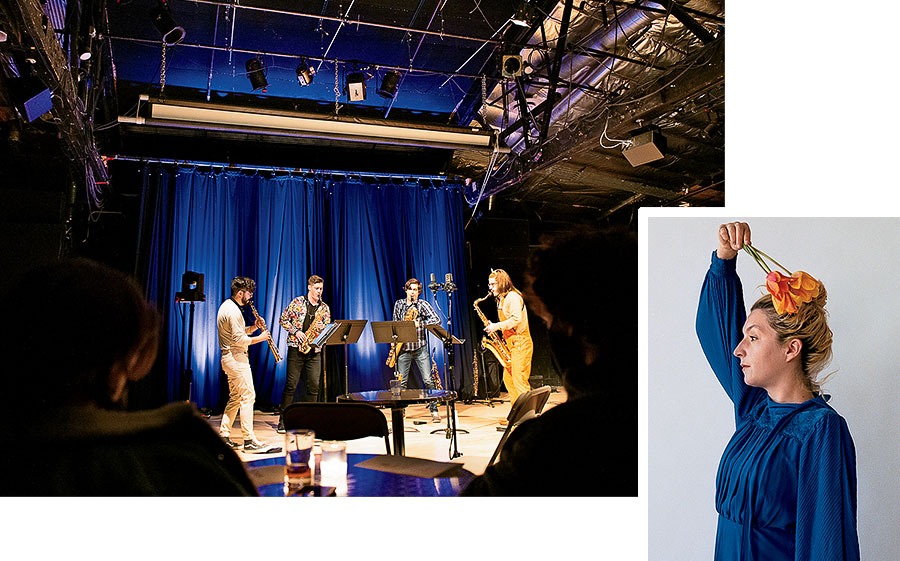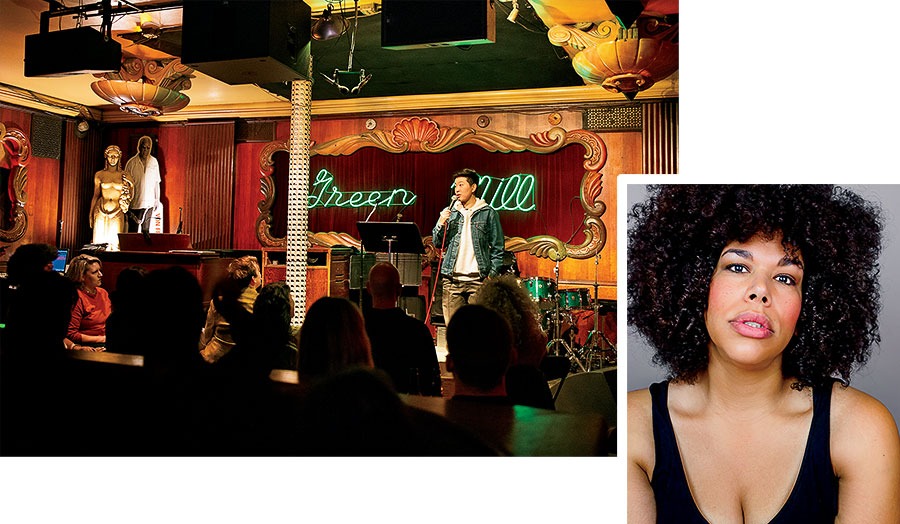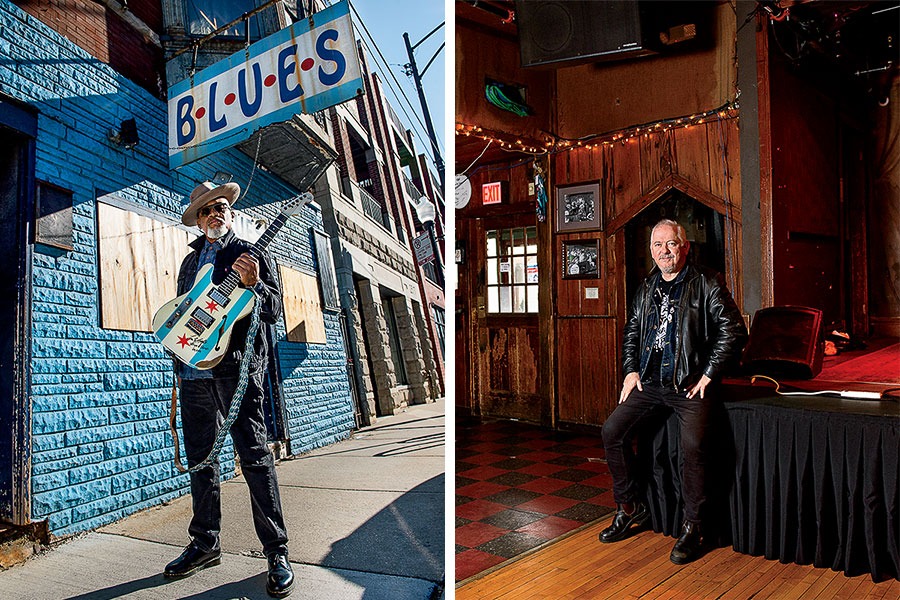We Chicagoans don’t just love our music clubs; we feel ownership of them. Mere venues of entertainment? No, these are secondary homes where we create cherished, indelible memories. We know the best spots to sit and stand, have deep associations with the smells, can navigate the bathrooms with our eyes closed, and, best of all, recognize kindred spirits among the workers, owners, audience members, and performers, No wonder how grateful we are to have these places — at least the ones that survived the pandemic — back in business.

We asked a few Chicago performers for the clubs they call home. Sima Cunningham, singer-songwriter in the rock band Ohmme, helped jazz drummer Mike Reed open the performance space Constellation (3111 N. Western Ave., Lake View) in 2013 and has been a regular ever since. “What I love about Constellation is it has always bridged the gap between accessibility and challenge in creative music. You can go there one night and listen to a really strange and maybe even surreal improvised performance that will challenge your ideas of how does music end up happening in this way? Another night you’ll go there and dance with musicians. That sort of mixture distills what is really special about Chicago. People are doing world-class stuff, but are also focused on making sure we’re having a good time along the way. I tangoed with a pizza box on the floor once after a very spirited New Year’s Eve show.”
Veteran blues guitarist and singer-songwriter Toronzo Cannon feels the spirits of the intimate B.L.U.E.S. (2519 N. Halsted St., Lincoln Park; temporarily closed) when he plays there. “It’s a smaller bar compared to the other bars, so everybody is up on you like you’re having a meeting. I would play Thursdays and some weekends there. The wood talked to you, the floors weren’t all correct, you know what I mean? It was a bar’s bar. It was lived in, and Pinetop Perkins and a lot of the greats played there. Sunnyland Slim’s piano is there. Lonnie Brooks played there, Koko Taylor, a bunch of old-timers from that second generation after Muddy [Waters], Otis Rush, Eddy Clearwater. If wood could talk, I would love to have conversations with that bar. If I could just sit there and draw the spirits from the blues people of the past who played there.”

Actress and singer-songwriter Bethany Thomas, who moved from her acclaimed one-woman performance in Northlight Theatre’s Songs for Nobodies into the Goodman Theatre’s A Christmas Carol (as the Ghost of Christmas Present), likes to hone her material at the “live magazine” Paper Machete, a free show Saturday afternoons at the Green Mill (4802 N. Broadway, Uptown). “That’s my scene. It’s a standing-room-only affair every Saturday at 3 p.m., and to get people to go into a dark bar at that time, it’s got to be something really special. They always have the most diverse lineups. You can do your weirdo piece, and then Hannibal Buress will come in to try out a set. It’s cool, too, because you can come in as a musician and meet a bunch of people from the comedy world. Samantha Irby is a huge television writer now and has been on the New York Times bestsellers lists. She’s a Paper Machete OG. A lot of people have found their voices there, and a lot of people still do.”
Welsh-born Jon Langford, founding member of such bands as the Mekons, the Waco Brothers, and Four Lost Souls, has been a fixture at FitzGerald’s (6615 Roosevelt Rd., Berwyn) as it has innovated its way through the coronavirus era. “They came into new management a week before the pandemic kicked in, and for the club it might have been the best thing to happen, to get this fresh blood in with so much at stake. The most successful livestream I did during the pandemic was with [Kentucky-based singer-songwriter] Will Oldham there. Then they did shows on the backs of pickup trucks. We’d get on with a PA and a livestream, so I’d be playing the whole time. At one stop someone ran up and gave me a bottle of whiskey and ran off again. Lots of bands played [on the redesigned patio]. It was free, but people could tip, and it helped [bands] survive. People needed joy and a bit of release.”



